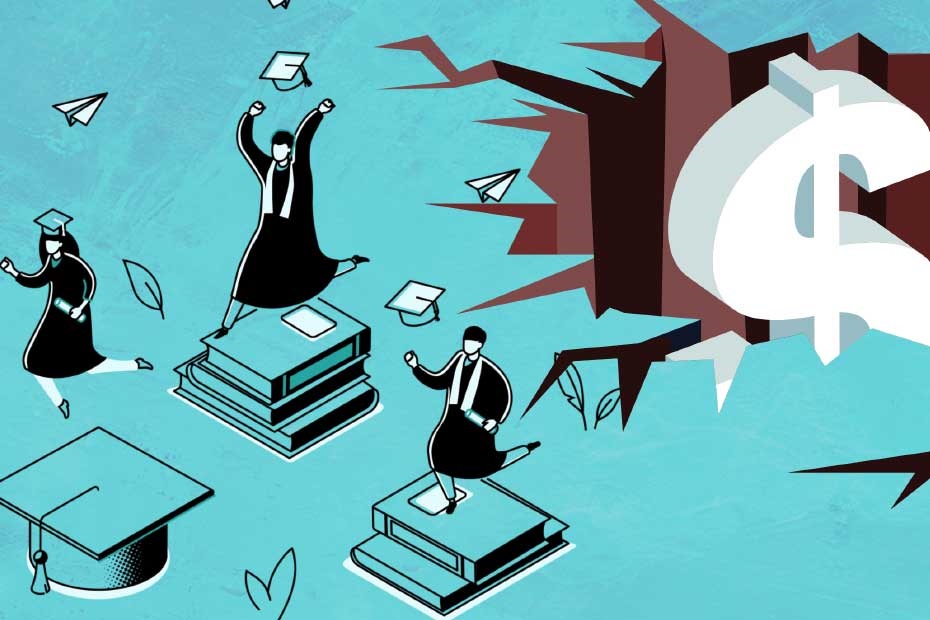In Kashmir, the promise of higher education is increasingly overshadowed by a harsh job market, leaving many educated youth disillusioned and struggling. The mismatch between academic aspirations and employment opportunities is leading to social and psychological challenges, from delayed marriages to rising mental health issues.
Dr. Moonisa Aslam Dervash
In today’s fast-paced world, where education is often hailed as the key to success, the journey of pursuing higher degrees is fraught with challenges, especially in regions like Kashmir. The dream of acquiring advanced education, once seen as a gateway to prosperity, is increasingly becoming a source of frustration and despair for many. The root cause? A crippling atmosphere of unemployment, societal judgment, and blurred pathways that leave the youth grappling with an uncertain future.
The Role of Upbringing
From an early age, children are often encouraged to excel academically, with parents and educators alike instilling in them the belief that higher education is the cornerstone of a successful life. This upbringing fosters a sense of determination and ambition, driving young minds to strive for academic excellence. However, as these students’ transition into adulthood, they encounter a harsh reality: the degree they worked so hard for does not guarantee employment.
The dissonance between the aspirations nurtured in childhood and the bleak employment landscape leads to a profound sense of disillusionment. The societal expectation that a higher degree will secure a lucrative job clashes with the reality of an oversaturated job market, where even the most educated struggle to find meaningful employment. This growing frustration is further exacerbated by a judgmental society that views unemployment as a personal failure, rather than a systemic issue.
Unemployment
The ripple effects of unemployment extend far beyond the economic sphere. In Kashmir, where traditional values hold significant sway, the inability to secure a job often leads to delayed marriages. The social stigma attached to unemployment can make it difficult for individuals to find life partners, further intensifying feelings of inadequacy and rejection. This delay in marriage, coupled with financial instability, contributes to a cascade of social issues, including depression, suicidal tendencies, and an alarming rise in drug abuse among the youth.
The psychological toll of unemployment is severe, with many young people feeling trapped in a cycle of hopelessness. The pressure to conform to societal expectations, coupled with the inability to meet those expectations, creates a fertile ground for mental health crises. The situation is further complicated by the lack of adequate mental health resources, leaving many to suffer in silence.
The Exodus
Faced with dwindling opportunities at home, majority of educated youth are choosing to migrate abroad in search of better prospects. While this exodus offers a temporary escape from the harsh realities of unemployment, it also comes with its own set of challenges. The separation from family, friends, and cultural roots can lead to a sense of alienation and loneliness, eroding the social, cultural, and ethical bonds that are integral to one’s identity.
Moreover, the migration of educated youth represents a significant loss of intellectual capital for the region. The very individuals who could have contributed to the socio-economic development of Kashmir are now building their lives elsewhere, leaving behind a vacuum that is difficult to fill. This brain drain not only hampers local development but also weakens the community’s social fabric, as traditional support systems are gradually dismantled.
The Unswerving Role of Government
The onus of addressing these challenges does not rest solely on the shoulders of individuals or families. The government has a critical role to play in creating an environment where education is valued not just as a means to an end, but as a tool for holistic development. This requires a multi-faceted approach that includes generating jobs in diverse fields, fostering entrepreneurship, and creating pathways for the educated youth to apply their skills in meaningful ways.
Investing in sectors that can absorb the educated workforce, such as technology, tourism, and developmental projects, is essential. Additionally, policies that encourage local innovation and provide support for start-ups can help retain intellectual assets within the region. By creating opportunities that align with the aspirations of the youth, the government can not only stem the tide of migration but also ensure that the intellectual wealth of the region is harnessed for its development.
The pursuit of higher education in the era of unemployment has become a double-edged sword for Kashmir’s youth. While education remains a powerful tool for personal growth, the lack of corresponding job opportunities has turned it into a source of frustration and despair. The social maladies that emerge from this disconnect—ranging from mental health issues to the breakdown of social bonds—underscore the need for a comprehensive approach that addresses both the aspirations and the realities of the youth. It is time for the government, society, and individuals to come together to forge a future where education truly fulfils its promise as a pathway to a better life.
The views expressed in this article are solely those of the author and do not necessarily reflect the opinions or views of this Magazine. The author can be reached at [email protected])


Leave a Reply